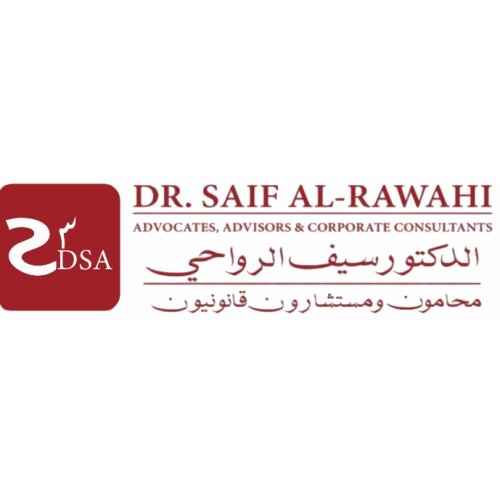Best Debt Capital Markets Lawyers in Oman
Share your needs with us, get contacted by law firms.
Free. Takes 2 min.
Or refine your search by selecting a city:
List of the best lawyers in Oman
About Debt Capital Markets Law in Oman
Debt capital markets (DCM) in Oman refer to the financial market where entities such as corporations, financial institutions, and the government raise funds through the issuance of debt instruments, including bonds and sukuk (Islamic bonds). Oman's DCM sector is regulated to ensure transparency, protect investors, and foster economic growth. The legal framework governs how these debt securities are structured, issued, listed, and traded within the jurisdiction. As Oman's financial markets continue to mature, the role of DCM has become increasingly significant, providing alternative financing solutions and supporting the nation's long-term development goals.
Why You May Need a Lawyer
Engaging a lawyer experienced in debt capital markets is essential to navigate the complexities of Omani law and regulatory requirements. You might need legal advice in the following situations:
- Structuring and issuing bonds or sukuk, whether as a corporation, financial institution, or government entity.
- Conducting due diligence or risk assessment in transactions involving debt securities.
- Navigating the listing process on the Muscat Stock Exchange (MSX).
- Complying with the Capital Market Authority's (CMA) requirements, such as disclosure and reporting obligations.
- Advising on cross-border investments or regulatory compliance for foreign issuers and investors.
- Resolving disputes related to debt instruments, defaults, or investor claims.
- Understanding the legal implications of Islamic finance instruments like sukuk.
- Negotiating and drafting transaction documents, including prospectuses and offering memoranda.
- Facilitating private placements and public offerings of debt securities.
- Guiding borrowers and investors through restructuring or refinancing of existing debt.
Local Laws Overview
The debt capital markets in Oman are principally governed by the Capital Market Law and supervised by the Capital Market Authority (CMA). Some key aspects include:
- Capital Market Law (Royal Decree 80/98 and amendments): Outlines the regulatory framework for securities issuance and trading.
- CMA Regulations: The CMA issues several rules and guidelines regarding the issuance and offering of bonds, sukuk, and other debt securities, listing requirements, disclosure standards, and investor protection.
- Islamic Finance Regulations: Sukuk are subject to additional Sharia-compliance requirements, overseen by the High Sharia Supervisory Authority and the CMA.
- Listing Rules: The Muscat Stock Exchange (MSX) has specific listing criteria for debt securities, which include minimum capital, track record, and corporate governance standards.
- Foreign Investment Rules: Regulations address how foreign investors and issuers can participate in Oman's DCM.
Failure to comply with local laws can result in regulatory actions, fines, or suspension from the market, making legal guidance essential for smooth operations and risk mitigation.
Frequently Asked Questions
What are the main types of debt securities issued in Oman?
The main types include conventional bonds, government securities, and Islamic finance instruments such as sukuk.
Who regulates the debt capital markets in Oman?
The Capital Market Authority (CMA) is the primary regulator overseeing the issuance and trading of debt securities.
Can foreign entities issue bonds or sukuk in Oman?
Yes, foreign issuers can issue debt securities subject to CMA approval and compliance with relevant local regulations.
What is the process for listing bonds or sukuk on the Muscat Stock Exchange?
Issuers must adhere to MSX listing rules, submit required documentation, gain CMA approval, and meet disclosure obligations throughout the listing process.
What are the disclosure requirements for issuing debt securities?
Issuers are required to provide a prospectus or offering memorandum detailing financials, risk factors, and other material information as per CMA rules.
Are there specific rules for Islamic debt instruments (sukuk) in Oman?
Yes, sukuk issuances must adhere to Sharia principles and require approval from designated Sharia supervisory bodies alongside standard regulatory compliance.
What protections do investors have in Oman's DCM?
Investors benefit from disclosure rules, listing standards, regulatory oversight by the CMA, and market conduct rules designed to ensure fairness and transparency.
Can retail investors participate in debt securities offerings?
Retail participation is allowed, but certain offers may be limited to institutional investors depending on the issuance structure and regulatory classification.
How are defaults or disputes on debt instruments handled?
Disputes are generally resolved through contractual remedies, arbitration, or court proceedings, depending on the terms of the instrument and parties involved.
What are the penalties for non-compliance with DCM regulations?
Penalties can include fines, suspension from issuing or listing securities, and other regulatory actions as determined by the CMA.
Additional Resources
If you are seeking more information or need to consult with a regulatory body or support organization, consider reaching out to the following:
- Capital Market Authority (CMA) - Oman's DCM regulator, responsible for issuing rules and providing guidance.
- Muscat Stock Exchange (MSX) - The official exchange for listing and trading debt securities in Oman.
- Oman Chamber of Commerce and Industry (OCCI) - Can provide networking and information resources for market participants.
- Law firms specializing in capital markets and financial regulation within Oman.
- International agencies offering guidance on best practices in debt capital markets.
Next Steps
If you need legal assistance in Oman's debt capital markets:
- Assess your specific situation and identify the areas where legal guidance is required.
- Gather all relevant documents, including financial statements, prior legal agreements, and any correspondence with regulators or counterparties.
- Research and contact law firms or legal consultants with proven expertise in Omani DCM.
- Arrange an initial consultation to discuss your needs, outline your objectives, and clarify the scope of services required.
- Ensure you understand the legal fees involved, typical timelines, and your obligations under Omani law.
- Stay informed about regulatory updates by subscribing to notifications from the CMA and monitoring market developments.
An experienced legal advisor is invaluable in protecting your interests, ensuring regulatory compliance, and supporting successful transactions in Oman's debt capital markets.
Lawzana helps you find the best lawyers and law firms in Oman through a curated and pre-screened list of qualified legal professionals. Our platform offers rankings and detailed profiles of attorneys and law firms, allowing you to compare based on practice areas, including Debt Capital Markets, experience, and client feedback.
Each profile includes a description of the firm's areas of practice, client reviews, team members and partners, year of establishment, spoken languages, office locations, contact information, social media presence, and any published articles or resources. Most firms on our platform speak English and are experienced in both local and international legal matters.
Get a quote from top-rated law firms in Oman — quickly, securely, and without unnecessary hassle.
Disclaimer:
The information provided on this page is for general informational purposes only and does not constitute legal advice. While we strive to ensure the accuracy and relevance of the content, legal information may change over time, and interpretations of the law can vary. You should always consult with a qualified legal professional for advice specific to your situation.
We disclaim all liability for actions taken or not taken based on the content of this page. If you believe any information is incorrect or outdated, please contact us, and we will review and update it where appropriate.
Browse debt capital markets law firms by city in Oman
Refine your search by selecting a city.

















